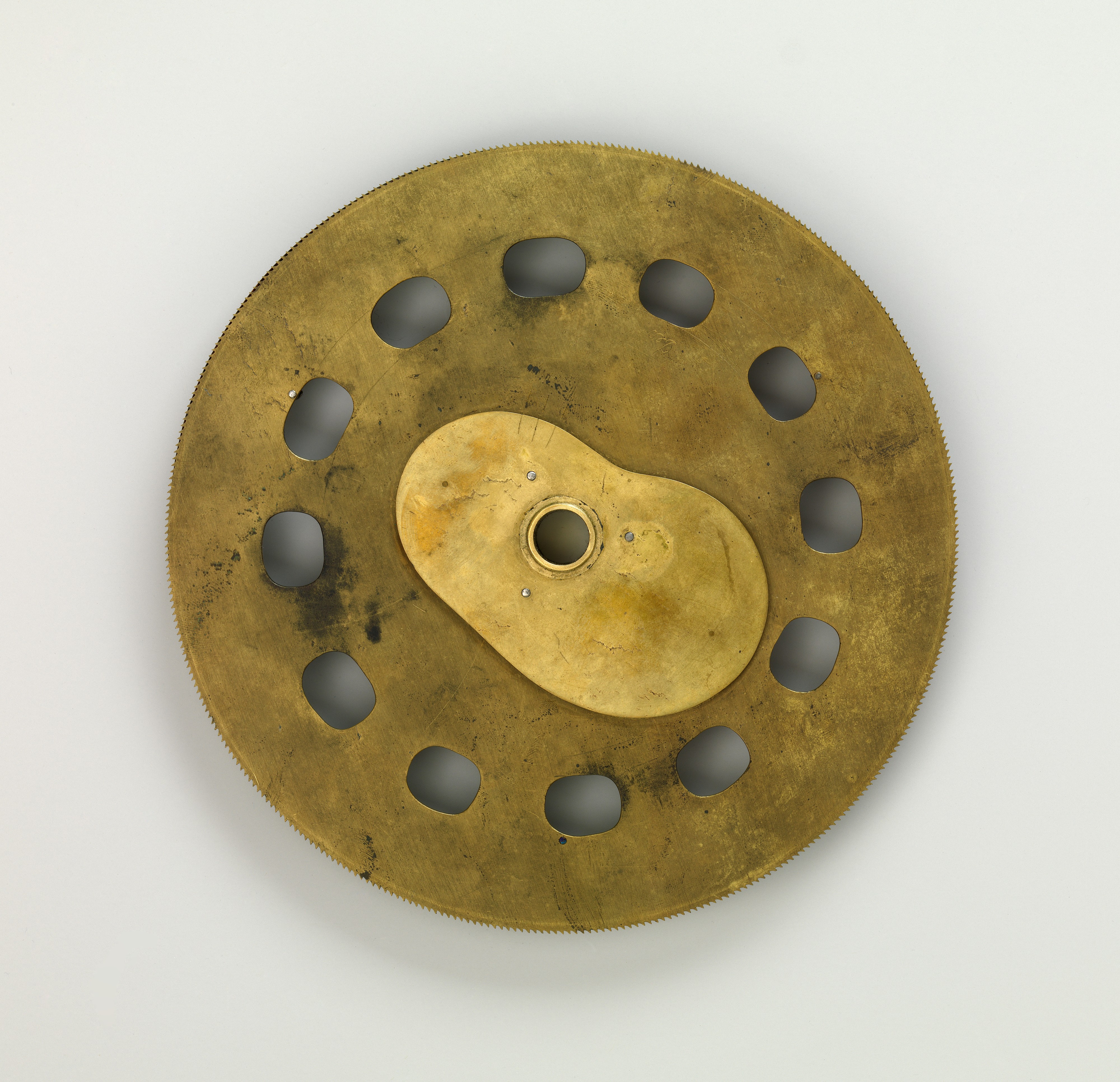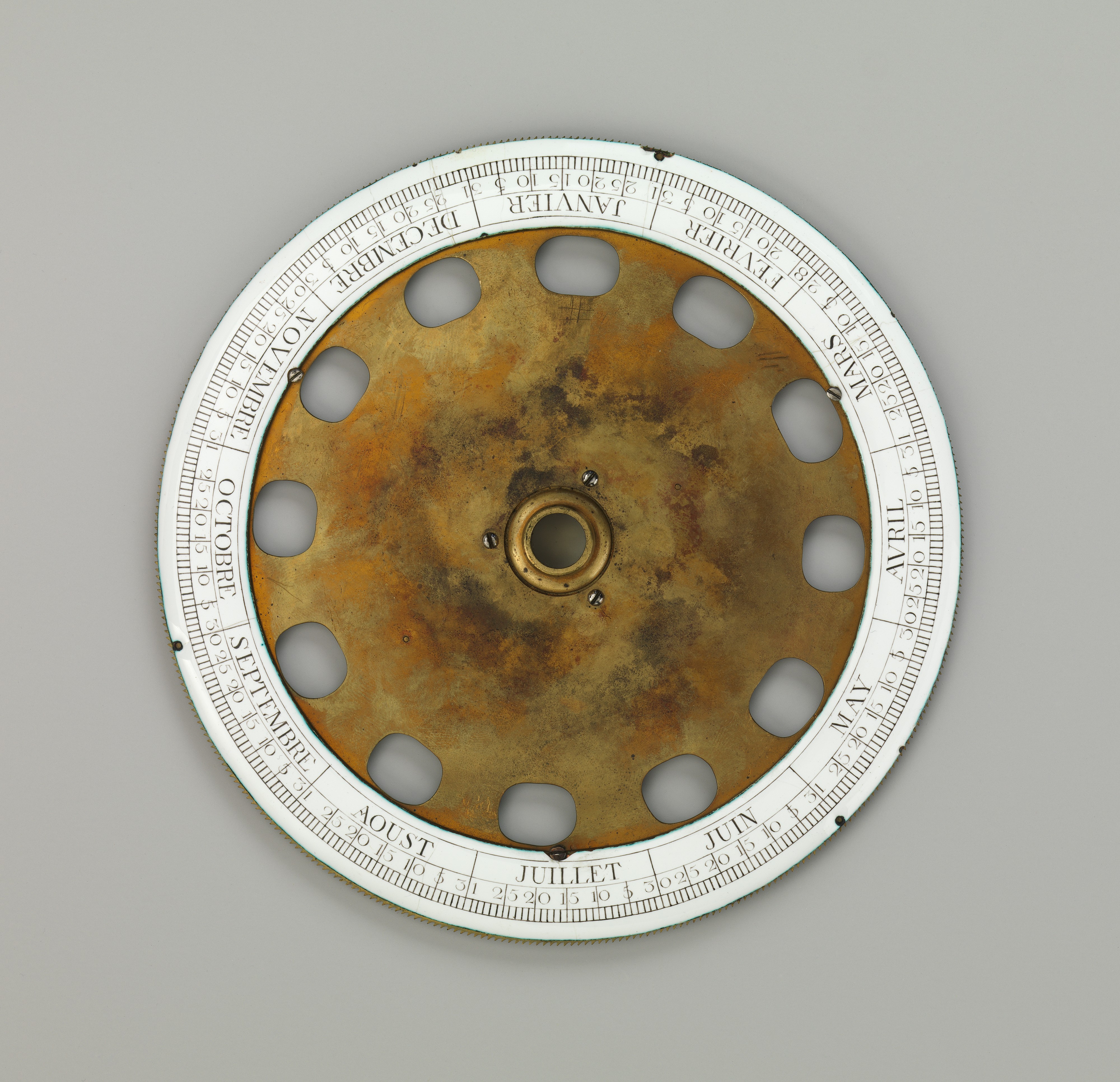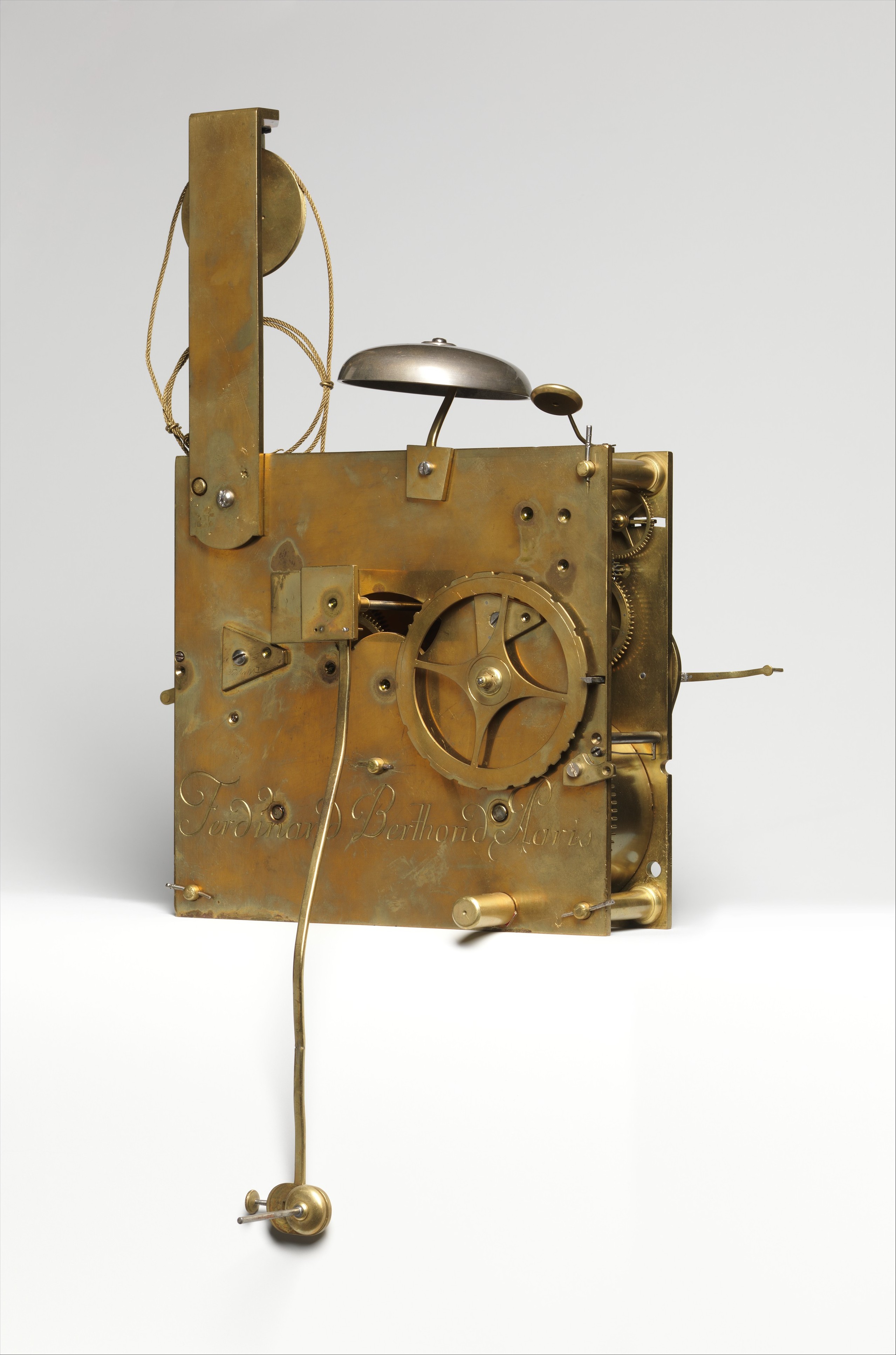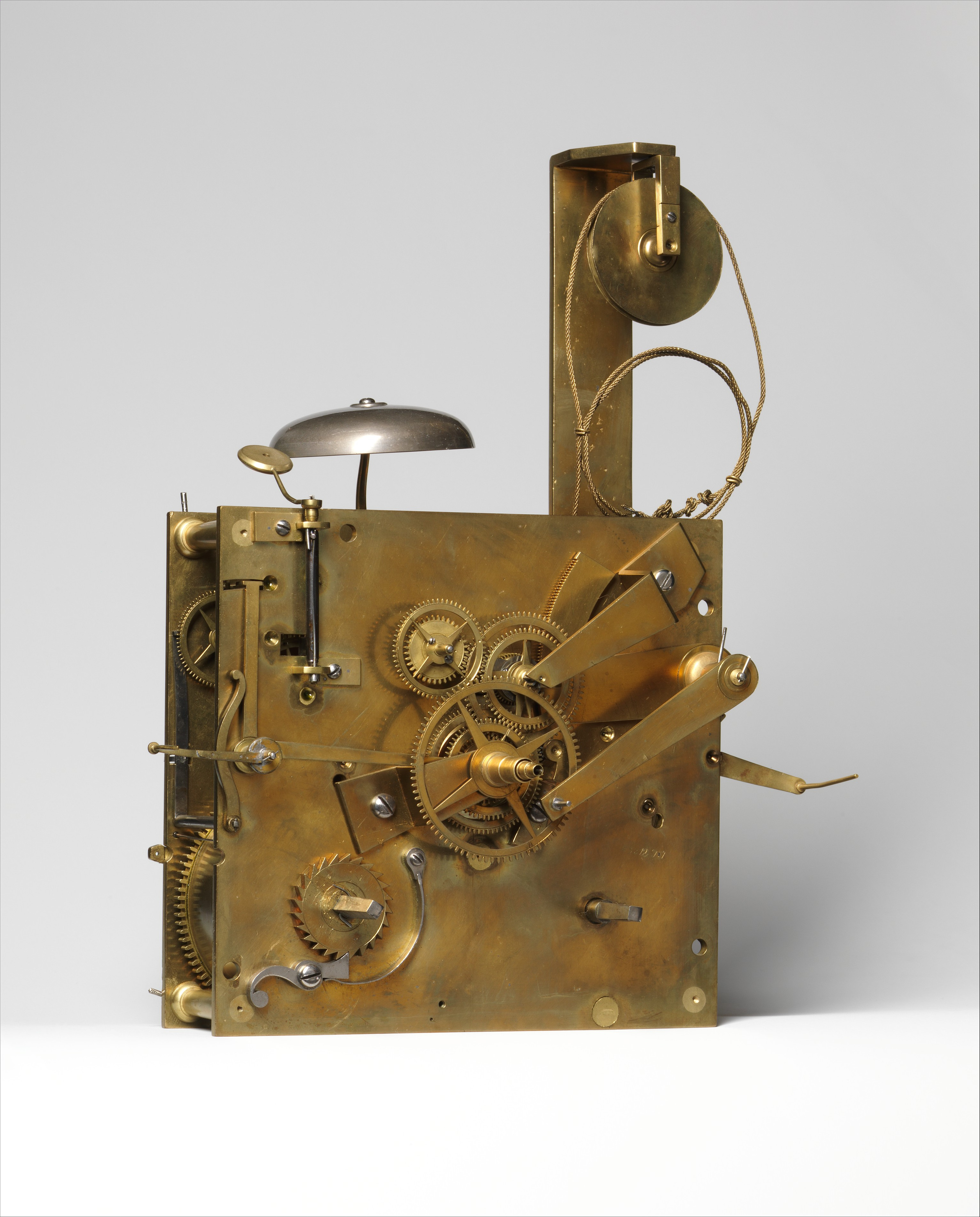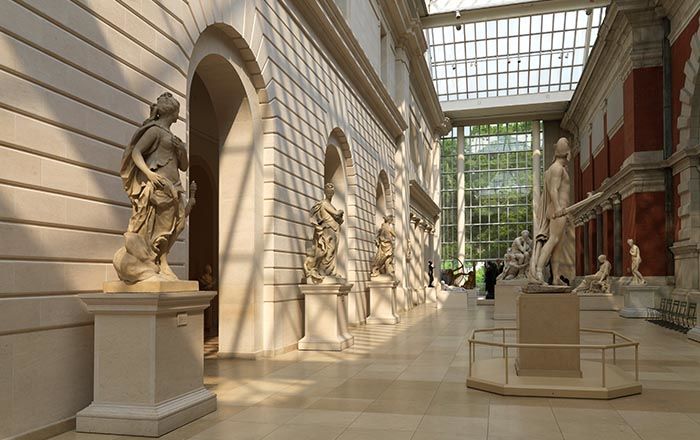Longcase astronomical regulator
Clockmaker: Ferdinand Berthoud French
Case maker: Balthazar Lieutaud French
Mounts probably cast from models by Philippe II Caffieri French
Berthoud is considered one of the fathers of the marine chronometer. He became a master clockmaker in Paris and was appointed clockmaker to the French king and navy. One version of an equation clock that registers both solar and mean solar time was Berthoud’s published invention. This clock is one of a series of regulators for which he made precision movements. It has a duration of one month and contains a bimetallic, or gridiron, pendulum. The thick brass and steel rods are mounted too closely together to be completely successful; nevertheless, these clocks were precise enough to be used by astronomers for timing celestial events. The severe neoclassical case with Chinese-style ornamental motifs was designed to display the ponderous swing of Berthoud’s pendulum.
Due to rights restrictions, this image cannot be enlarged, viewed at full screen, or downloaded.
This artwork is meant to be viewed from right to left. Scroll left to view more.



